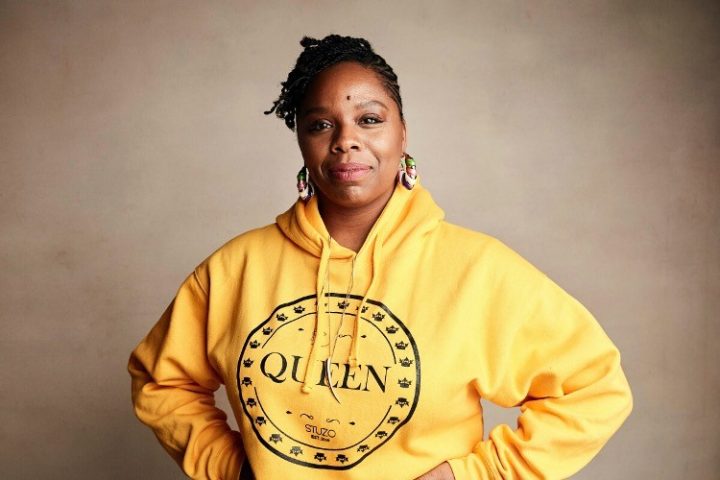
Black Lives Matter Global Network Foundation (BLMGNF) co-founder Patrisse Khan-Cullors is leaving after nearly six years in the top spot, but insists her departure has nothing to do with the recent controversy over her real-estate purchases.
On Thursday, BLMGNF announced a “leadership transition,” saying Cullors leaves the organization in a strong position to support grassroots, art/culture work and policy work that invests in the future of black lives. During her tenure, Cullors helped the organization reach several milestones, it is noted, such as advocating for “a future that is divested from police, prisons, and all punishment paradigms and replaces it with greater investment in justice and culture programs,” as well as “emphasizing creativity and joy in Black communities by supporting and showcasing Black artists and cultural influencers,” and financially supporting families of “victims” of “police violence,” and donating millions of dollars to black-led organizations and black families struggling during the pandemic, “especially organizers, those affected by police violence or who are LGBTQIA.”
“I’ve created the infrastructure and the support, and the necessary bones and foundation, so that I can leave,” Cullors said. “It feels like the time is right.”
BLMGNF also confirmed an appointment of two senior executives to replace Cullors. “As a strong advocate for the transformation of Black lives and the end of white supremacy, I’m eager to continue the foundation’s great work over the coming months,” said one of them, Monifa Bandele.
Earlier this year, property records showed that Cullors had purchased four homes worth $3.2 million combined, including a $1.4 million home in Topanga Canyon, a wealthy area of Los Angeles where only 1.4 percent of the population is black.
When the ritzy real estate purchases of the self-described “Marxist” Cullors became public, she defended herself, saying there is no contradiction between her socialist ideals and her getting wealthy. “The way that I live my life is in direct support to black people, including my black family members,” Cullors insisted during a CNN interview.
Cullors also sent out a stream of defensive Instagram posts, insisting she did not receive a salary or benefits from BLMGNF — while mentioning nothing about her handsome remuneration for her work as one of the figureheads of the BLM movement, the healthy paychecks she has received from book and TV deals, or the speaking fees she has pocketed over the last few years. She did not attempt to deny any of the allegations regarding her profligate spending, acknowledging she had “definitely made mistakes” without explaining what those mistakes were.
Cullors insisted her splashy spending was normal for “so many black folks who are able to invest in themselves and their community,” pointing out that “they choose to invest [their earnings] in their family and that’s what I’ve chosen to do.”
Cullors claimed her departure has been in the works for some time, and has nothing to do with the controversy over her recent home purchases, for which she has been widely criticized.
“Those were right-wing attacks that tried to discredit my character, and I don’t operate off of what the right thinks about me,” she said.
Left unaddressed was the criticism from BLM chapters around the United States, which have been complaining since December that even though the foundation’s funds had skyrocketed in 2020 and reached $90 million, only crumbs were doled out to the grassroots rank-and-file.
In an open letter, 10 BLM chapters aired a range of grievances over the leadership’s lack of transparency and the exclusion of local chapters from input-giving processes. The statement, released by Politico, noted:
We became chapters of Black Lives Matter as radical Black organizers embracing a collective vision for Black people engaging in the protracted struggle for our lives against police terrorism. With a willingness to do hard work that would put us at risk, we expected that the central organizational entity, most recently referred to as the Black Lives Matter Global Network (BLMGN) Foundation, would support us chapters in our efforts to build communally. Since the establishment of BLMGN, our chapters have consistently raised concerns about financial transparency, decision making, and accountability.
Chapters also voiced their dissatisfaction with Cullors becoming BLMGN’s executive director “against the will of most chapters and without their knowledge.”
The 10 chapters encouraged BLM supporters to donate funds directly to local groups instead of the global network.
Another aspect of the BLM’s internal dissatisfaction with Cullors lies within her exploitation of black families’ real struggles.
“That is the most tragic aspect,” said the Reverend T. Sheri Dickerson, president of an Oklahoma City BLM chapter and a representative of the #BLM10, a national group of organizers that has publicly criticized the foundation over funding and transparency.
“I know some of [the families] are feeling exploited, their pain exploited, and that’s not something that I ever want to be affiliated with,” Dickerson said.
Tamika Palmer, the mother of Breonna Taylor — who was shot by the police during the investigation into drug-dealing operations, which sparked BLM protests across the nation — called BLM a fraud.
In a since-removed Facebook post, Palmer claimed the group used “dead black people to fund and empower white Democrats.”




